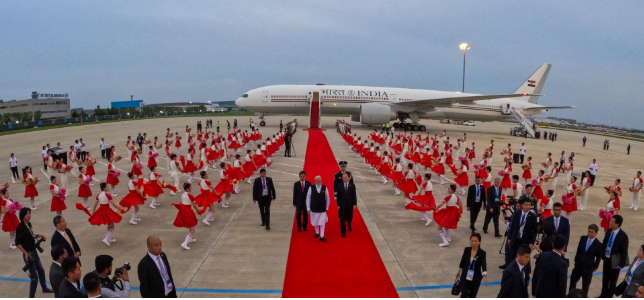

Beijing, August 30: Prime Minister Narendra Modi has arrived in Tianjin, China, to participate in the Shanghai Cooperation Organisation (SCO) summit, a key regional platform that brings together major powers to discuss security, trade, and connectivity. The visit is being closely watched, given the current geopolitical environment in South Asia and beyond.
During the summit, PM Modi is scheduled to hold bilateral meetings with Chinese President Xi Jinping and Russian President Vladimir Putin. Both discussions are expected to focus on strengthening regional cooperation, addressing security concerns, and exploring new opportunities in trade and energy partnerships. These meetings also come at a time when the India-China relationship continues to be under international scrutiny, particularly due to lingering boundary disputes and recent diplomatic tensions.
The timing of Modi’s visit is significant, as it follows Nepal’s strong objection to the resumption of trade between India and China through the Lipulekh Pass. Kathmandu had recently issued a statement reiterating that the southern side of the Lipulekh Pass—widely known as the Kalapani region—falls within Nepal’s territory. The Nepalese government emphasized that it has been consistently urging New Delhi to halt all trade and infrastructural activities in the disputed area.
The SCO summit in Tianjin is expected to witness discussions on regional stability, counterterrorism measures, economic integration, and climate challenges. For India, the event provides not only an opportunity to engage with neighboring countries but also a platform to assert its stance on territorial sovereignty and connectivity projects that impact South Asia.
As global eyes turn to Tianjin, PM Modi’s engagements with President Xi and President Putin are likely to set the tone for India’s foreign policy outreach in the region, balancing cooperation with strategic caution in an increasingly multipolar world.